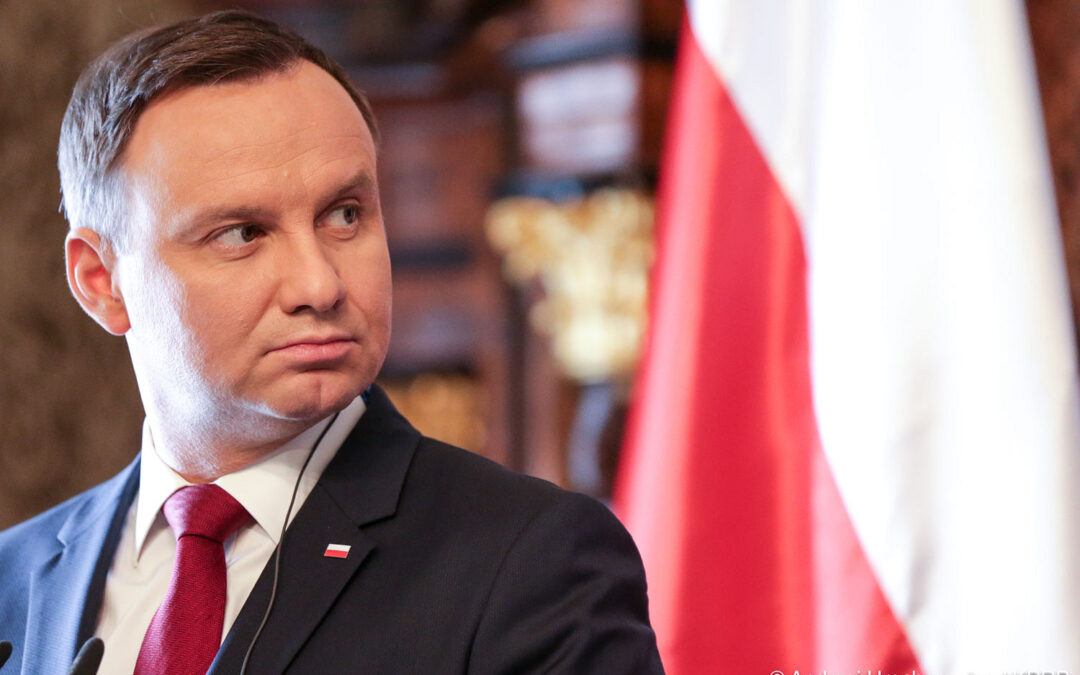Poland’s president, Andrzej Duda, has issued a veto to block the introduction of an education law that would have created stronger central control over schools, including new powers to prevent outside groups such as NGOs from visiting them.
The education minister had argued that the law would help “protect children from moral corruption”, but the opposition and many experts and activists argued that the purpose was to increase the conservative government’s political and ideological control over schools.
In his announcement today, Duda stressed that there were some elements of the law he agreed with, but others he opposed. However, he said that, given the current situation in Ukraine and its impact on Poland, it was best to “postpone” such discussions.
“Because I am appealing for unity, for the absence of political disputes, I have therefore decided to refer this law for reconsideration,” said the president, quoted by Wirtualna Polska.
“I am not saying that I had no objections to this law – I did – but there were also a number of [elements] that I supported and which I believe should be introduced,” he continued.
“But let’s postpone that for later. For now, there is a veto. Please consider the topic closed for now; let it not distract us from the most important matters, the security of Poland.”
Wetuję, bo wojna na Ukrainie. Aha.
— Samuel Pereira🇵🇱🇺🇦 (@SamPereira_) March 2, 2022
The proposed law would have granted government-appointed education superintendents additional powers over hiring and dismissing headteachers, as well as over preventing outside organisations from operating in schools. That led to fears that groups offering, for example, sex education classes would be banned.
After being initially passed by the Sejm, the lower house of parliament where the national-conservative ruling Law and Justice (PiS) party has a majority, in January the bill was rejected by the opposition-controlled Senate. That decision was, however, then overturned by the more powerful Sejm in February.
Rumours had suggested that Duda – normally a PiS ally – was strongly considering vetoing it. In an unusual move, the first lady, Agata Kornhauser-Duda, who herself previously worked as a teacher, invited opposition politicians to discuss their concerns over the bill.
The legislation now passes back to the Sejm, which can in theory overturn the veto with a three-fifths majority of MPs. But the ruling coalition, which has only a narrow majority, would find that impossible to muster given that most opposition parties do not support the measures.

Daniel Tilles is editor-in-chief of Notes from Poland. He has written on Polish affairs for a wide range of publications, including Foreign Policy, POLITICO Europe, EUobserver and Dziennik Gazeta Prawna.




















